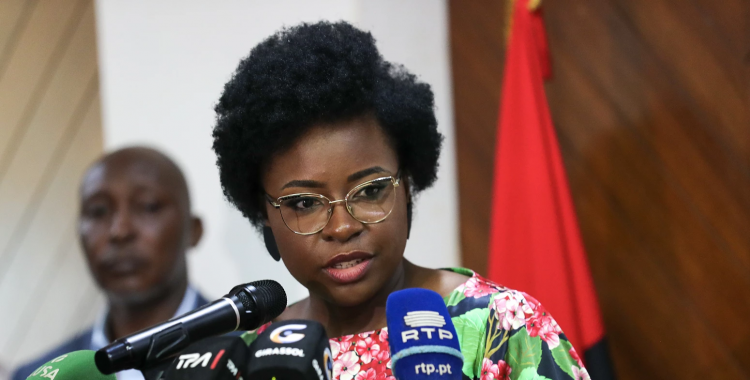"Due to Angola's heavy dependence on oil, all it takes is a spark, whether via production or via price, and the circus can catch fire, and it did; in June 2014, the price of a barrel of oil rose from 118, one paradise, or Eden, as you wish, for less than 30 dollars, and we quickly went to hell, when that fall that lasted a long time was registered", said Vera Daves de Sousa.
"In January 2016 and then in September 2018, there was a slight recovery in the price, above 60 dollars per barrel, but then it dropped again, staying above 40; and we reached 2020 with little investment in the sector, which reflected in the reduction of production, and then the pandemic arrived", recalled the minister.
"It was the perfect storm, which dropped the price of a barrel to less than 20 dollars, and was correlated with production, which was 1.9 million barrels a day, and went to 1.1 million barrels a day, a value which remains more or less constant until today," he added.
In her speech, Vera Daves de Sousa recalled the challenges facing the national economy, characterized by its strong dependence on oil and the need for economic diversification.
"Economies that are vulnerable or exposed to the behavior of a single raw material make external shocks even more challenging, and depending on the evolution of prices and production, there are consequences for those who are responsible for managing public finances," she said.
With this "perfect storm", Angola realized that it had to resort to the help of the International Monetary Fund, not only technical, but also financial.
"We made a public finance reform program and went knocking on the IMF door, asking if they agreed with our vision, and we thought, at first, that technical assistance was enough, but then we realized that money was needed", concluded Vera Daves de Sousa, referring to the expanded funding program that ended in December 2021, worth US$4.5 billion.
The meeting began this Thursday morning with the intervention of the Minister of Finance, followed by the intervention of the former Portuguese Minister of Finance João Leão on “The Role of Solid, Transparent and Responsible Public Finances”.
On Friday, it will be the turn of the former finance minister of Cape Verde, Cristina Duarte, to address the theme “Which ways to align public policies with the transformation of the continent?”, before the deputy prime minister and finance minister Cape Verdean, Olavo Correia, to present "Public Expenditure and Social and Financial Responsibility: the case of Cape Verde".
In addition to the former rulers, the president of the Portuguese Court of Auditors, José Tavares, several Portuguese-speaking MPs and the president of Orango Investment Corporation, Guinean Paulo Gomes, will speak at the forum, which ends on Friday.







